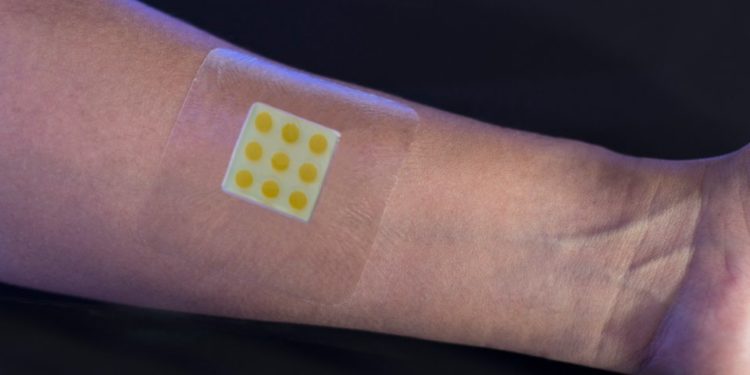Essentially, the device will solely be used for diagnostic purposes, while the hope is that it will diagnose an infection at an early stage, and thus lead to fewer antibiotics and preventing drastic measures, such as limb amputation.
The researchers say they envision the plaster being particularly useful in those with diabetes, where the management of chronic wounds is routine.
The plaster, which is equipped with embedded nanosensors in bandage fibers, is expected to be a continuous and noninvasive means of detecting and monitoring an infection happening inside a wound.
The study, published in the journal Advanced Functional Materials, states that the new ‘smart bandage’ detects, and might even prevent infections in wounds.
Until this development, the challenge in using nanotubes in applications like this lies in immobilizing them in a biocompatible way so they remain sensitive to their surrounding environment, Roxbury added.
The smart plasters will be put to tests in the following months, the researchers say.









